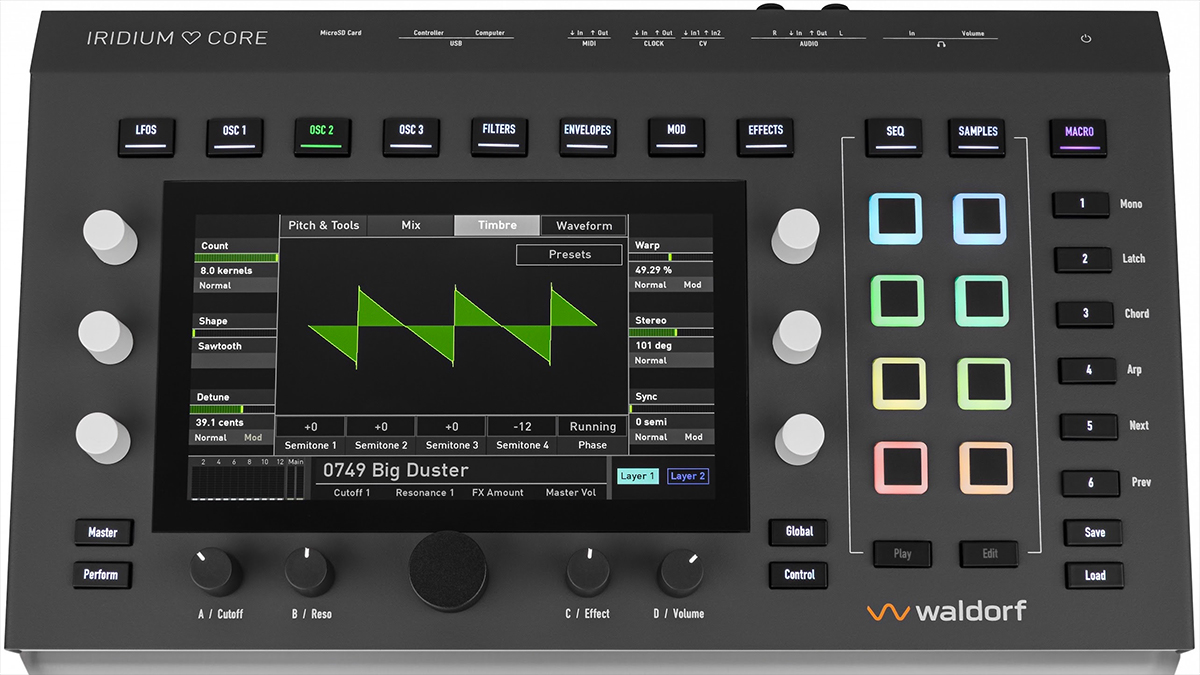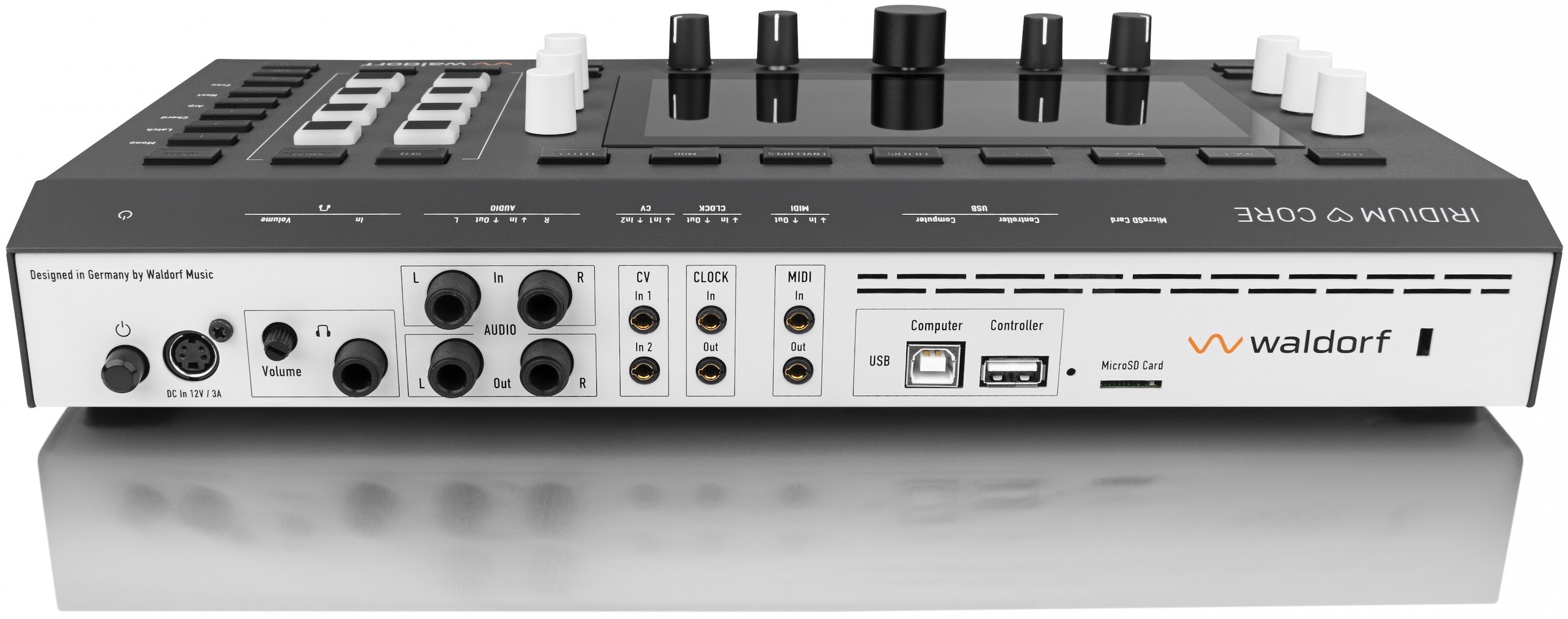Waldorf downsizes its Iridium synth and launches a smaller ‘Core’ version for performers and musicians on the move
Powerful 3-oscillator instrument heads back to the desktop
Want all the hottest music and gear news, reviews, deals, features and more, direct to your inbox? Sign up here.
You are now subscribed
Your newsletter sign-up was successful
Waldorf’s Iridium synth began life as a desktop module, then turned into a keyboard, and has now risen in a desktop format once again. Known as Iridium Core, this new 12-voice version contains the full Iridium sound engine, and enables you to access it via a supposedly easy-to-use interface.
Why the need for it, though? “Many performing musicians have asked us for a more compact and portable form factor for the incredible Iridium sound engine to pack into their travel bags or allow already densely-packed studio environments to more easily accommodate another hardware instrument,” explains Waldorf Music CTO Rolf Wöhrmann.
“Inspired by their feedback, we came up with the Iridium Core concept, and are very proud of the finished result,” he adds. “Indeed, it’s a thing of beauty, ready to be taken anywhere, and we can’t wait to hear all the music made with Iridium Core!”
To recap, that Iridium engine features three oscillators, five synthesis models (wavetable, multisample/granular, waveform, resonator and kernel), filters, a 40-slot mod matrix with LFOs and envelopes, effects, an audio recorder and more. As on previous iterations of the synth, these features can be accessed from a combination of a touchscreen, buttons and knobs.
These controls include six assignable macro buttons for performance control, and four user-definable knobs that work on either a patch or global basis. There are 1,700 factory presets, and patch compatibility with not only the other members of the Iridium family, but also Waldorf’s Quantum and Quantum MK2.
Connectivity includes mini-jack MIDI I/O, CV, Clock, audio I/O and a MicroSD slot.
Iridium Core will initially be available for €1,849, rising to €1,941 after four weeks. Find out more on the Waldorf website.
Want all the hottest music and gear news, reviews, deals, features and more, direct to your inbox? Sign up here.





I’m the Deputy Editor of MusicRadar, having worked on the site since its launch in 2007. I previously spent eight years working on our sister magazine, Computer Music. I’ve been playing the piano, gigging in bands and failing to finish tracks at home for more than 30 years, 24 of which I’ve also spent writing about music and the ever-changing technology used to make it.